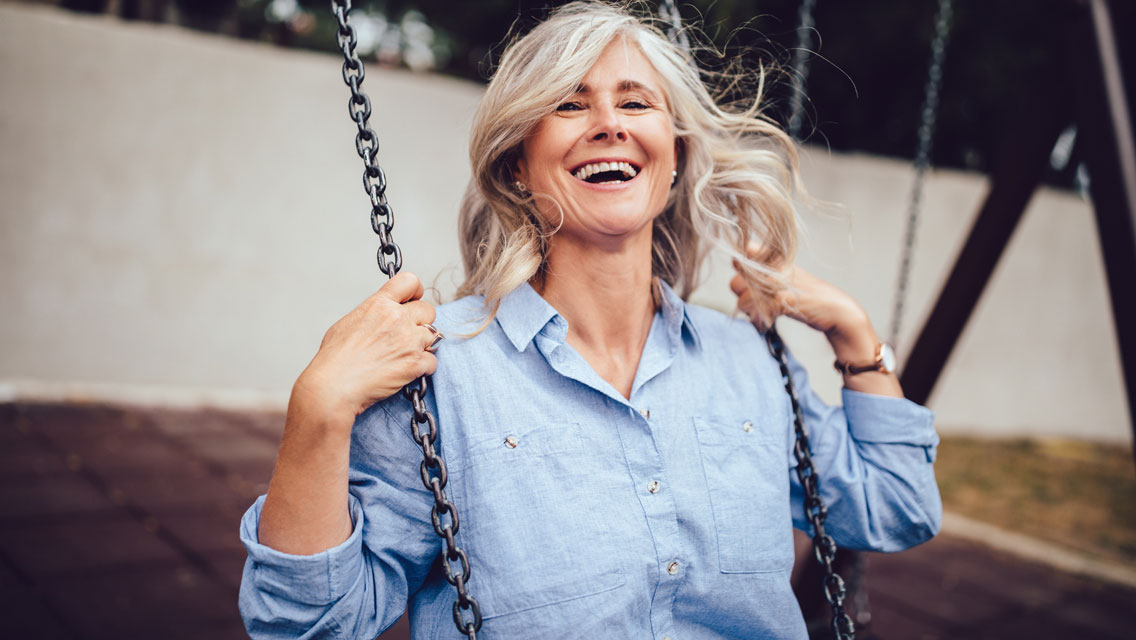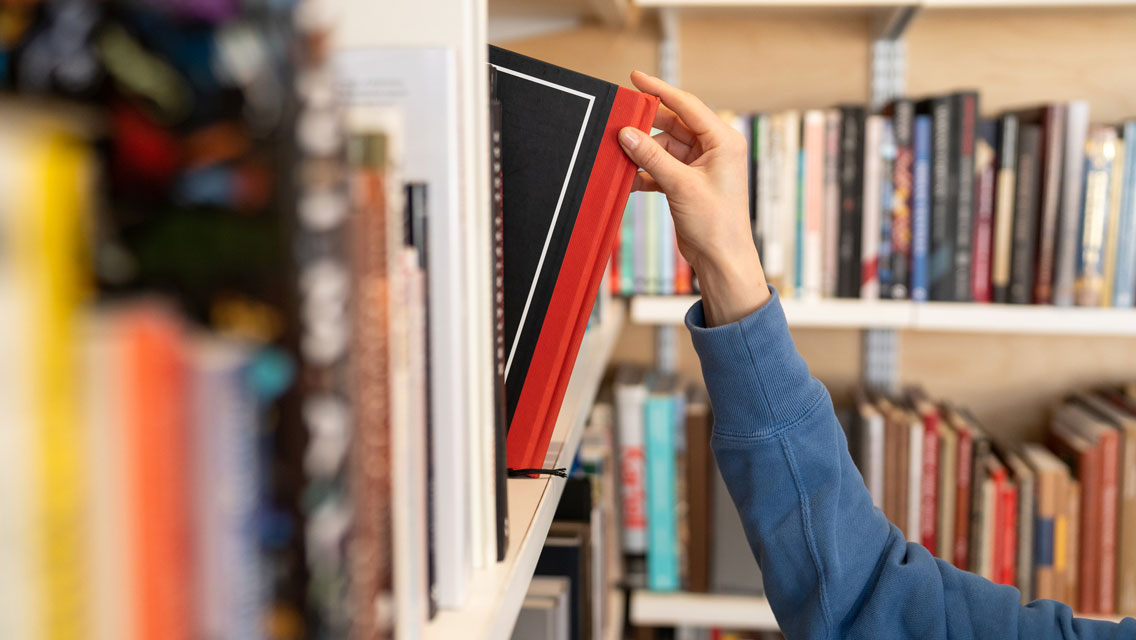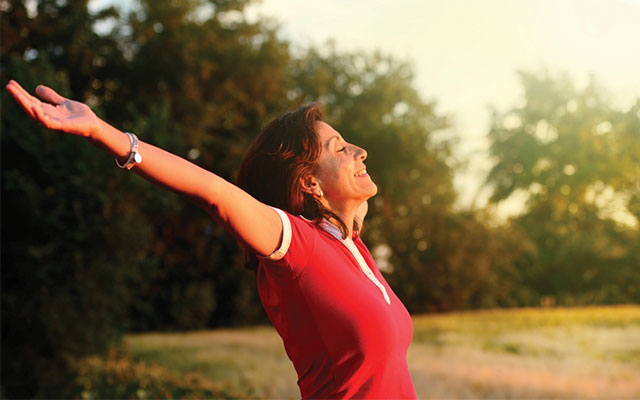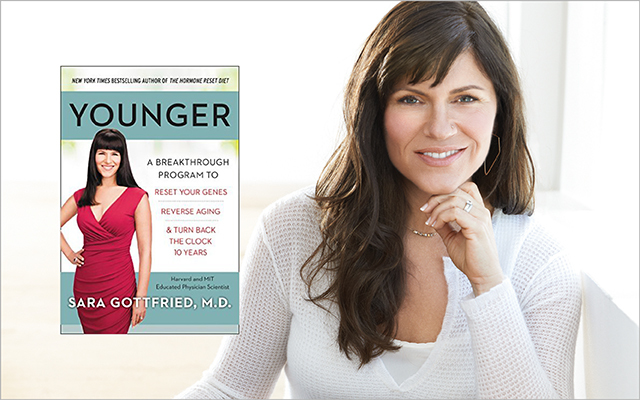|
Listen to this article:
|
Rejuvenate: 1. To make somebody become, feel, or appear young again, 2. to restore something to its condition when new, or make it more vigorous, dynamic and effective.
Rejuvenating has to be one of the most popular buzzwords in advertising these days. Rejuvenating cosmetics, rejuvenating rituals, vacations, supplements – just about every product category imaginable is boasting the ability to shave off at least a few years.
And then there are the miracle medical treatments. Human Growth Hormone is only the beginning: Right now, across the globe, a wide variety of geneticists, endocrinologists, biologists and other scientists are hunkered down in their labs with pet research projects, intent on finding ways to manipulate our bodies at the molecular level. All hope to discover some test-tube version of the fountain of youth that can successfully slow, halt or even reverse the aging process.
It sometimes seems we are obsessed with the idea of reclaiming our youth. We subject ourselves to strange, humiliating and occasionally dangerous procedures, and happily pay near-strangers to inject our wrinkles with poison, to cut away extra skin, to vacuum away our fat – but for what end result?
What are we so desperately hoping to restore? And just what, exactly, do we intend to do with our youth when and if we should somehow recover it?
I suspect that most of us aren’t entirely sure. We want the flawless complexion, the lean physique, certainly. But beyond the aesthetic longing for smooth skin, firm flesh and a little more get-up-and-go, could it be that our hearts are yearning for something even more elusive, and more important?
My own theory is that while many of us obsess outwardly about the exterior trappings of youth, some of our deepest longings are actually for the feelings of youth – the sense of enthusiasm and possibility, the raw energy and excitement, the permission to experiment and explore. We long to feel as fully alive again, to be as present in our bodies, as full of potential.
Ironically, the cultivation and possession of characteristics like these can actually make us look dramatically younger, too. But, being a perverse species, we typically start working from the other end. We busy ourselves with trying to look younger so that we can feel younger, when it’s really much more effective and rewarding all around to start with the feelings, then let those feelings be reflected through our physical selves.
1) Envy Lessons
Have you ever found yourself looking at a kid or young person and been just totally awestruck by his or her beauty? It’s hard not to be envious sometimes, but perhaps watching young people closely – and even acknowledging our envy of them – is a great way to get some clues about how we can feel and look younger, too.
Children have that glow – a clarity and luminosity and light in their eyes that we tend to lose in later years. Chalk it up to skin texture and collagen if you like, but what I’ve noticed is that some adults never seem to lose that “light,” even well into their 40s, 50s, 60s, and beyond. I’ve also noticed that these same youthful-looking people also possess many of the same lifestyle habits and attitudes as healthy kids.
So, what do kids have going for them that we don’t? For one thing, they know how to be immediate and authentic with their emotions. They also know how to play, how to be curious, how to let themselves light up and celebrate when they’re happy or excited. They’re enthusiastic, hopeful and generally spontaneous.
Kids know what makes them happy, but they’re always interested in discovering new things that make them even happier. Adults, meanwhile, run on obligations, routines, worries, overwork and stress. The enjoyments we block out and the stressful burdens we carry conspire to make us look and feel far older than we are.
I suspect that the key to rejuvenation, lies in re-creating more of these circumstances for ourselves – not by rejecting our adulthood, but by combining our youthful exuberance with the insight and depth that maturity brings.
Not that being a kid is easy, either. We might like to think that kids have nothing to worry about, but any kid can tell you that’s simply not true. The fact is, kids have daunting troubles and emotional pressures, too. The big difference is, at least in healthy family situations, they also have an infrastructure – including many essential forms of physical and emotional support – that help them recover and cope.
Here, too, we can learn from them. The healthy, happy kids I know, for example, spend a great deal of time outdoors. They get lots of fresh air and fresh food, and plenty of sleep. When they’re sick, they stay home. When they’re excited about something, they refuse to put it down. Their parents give them plenty of space to experiment, to take risks and make mistakes. They’re always learning, and they absorb things best from direct experience rather than by sitting at a desk or being lectured. They feel listened to when they are upset. They generally feel safe and secure, knowing that they are loved.
I suspect that the key to rejuvenation (which, according to its linguistic definition, quite literally means “re-youthing”), lies in re-creating more of these circumstances for ourselves – not by rejecting our adulthood, but by combining our youthful exuberance with the insight and depth that maturity brings.
2) Rekindling Kindergarten
There’s some truth in that old cliché, “youth is wasted on the young.” But adulthood is also wasted on adults. Think about it: When you’re a kid, adulthood can look pretty neat and empowering. That’s why, from a very early age, we begin to emulate our elders. We want to act grown up, to have access to grown-up things. Long before we are ready for school, we’re pretending and playing at going to school. We also play at going to work, at cooking, driving and talking on cell phones. By the time we are adolescents, we’re trying to look older than we are.
Obviously, we learn how to make our way in the world by imitating people older than we are. This is the natural order of maturation, but it’s also the source of a fair bit of disappointment. The prospect of being able to make your own decisions and do whatever you feel like doing looks wonderful from a distance. Yet somehow, once you get there, being an adult isn’t nearly as satisfying or glamorous as it looked from a child’s perspective.
Under that appearance of childish behavior may lie a deep desire to satisfy our internal child once and for all – so we can move on with full gusto into the business of being fully satisfied adults.
There are all these responsibilities that come with the territory. And that whole business about being able to do whatever we like? Well, that turns out to be a cruel illusion: In adulthood, the controls just multiply and morph into different forms.
The result of all this is that very quickly we can end up moving almost seamlessly from pretending to be an adult to actually being an adult and coping with adult burdens. In our haste to grow up, we effectively sacrifice a big chunk of our childhood. This may leave us with a hunger that is never satisfied. The net result of this childhood interruptus: We reach back with longing, trying to grab and hold onto whatever we can.
As a culture, we may appear to outsiders to be perpetually suffering from “Peter Pan syndrome.” Yet under that appearance of childish behavior may lie a deep desire to satisfy our internal child once and for all – so we can move on with full gusto into the business of being fully satisfied adults.
3) Paying With Our Bodies
Let’s look at how this tussle with aging plays out. For most kids, school is a full-time job. Add various outside classes, tutors, extracurricular activities, homework, chores, and by the time we reach high school we are already overcommitted.
We jump directly from high school to either college or a job, and from college we are expected to jump directly into a career. Our focus is always on the future. Sometime about 29 or so, we may feel like life is passing us by and we never got the chance to get off the merry-go-round and play on the other rides.
This can trigger extreme behaviors fueled by the panic that we are going to miss the fun part of life. Or it can trigger a rising hopelessness. We see stress aging our bodies, and we latch onto that as something we can control a little. We tackle the symptoms from the outside – with creams, potions, workouts and surgeries – but we rarely address the breakdown occurring at our core.
Stress works like a credit card – it forces your body to borrow its resources of tomorrow to get through today. But at some point that bill comes due, with interest, and often that debit takes the physical form of premature aging.
Stress works like a credit card – it forces your body to borrow its resources of tomorrow to get through today. But at some point that bill comes due, with interest, and often that debit takes the physical form of premature aging. Our eyes, skin and hair lose their sheen. Our metabolism plummets. Our excitement in using our body diminishes. But, having no time to simply be, much less regroup and recuperate, we continue to pile up more and more stress, perhaps hoping to buy ourselves some time to relax “in the future.”
Meanwhile, seeing that things aren’t going to be fun or easy for a long, long time, the child in us simply checks out. Buh-bye. When this happens, that part of us just withers and crumples like old skin.
Whether or not we can name what’s happened, we feel it. Watching children, we may suddenly be overcome with envy or grief. Their enthusiasm, hope, spontaneity and ability to be emotionally authentic seem to us as far out of reach as another galaxy. Their boundless energy, ability to play and be fully present in each moment may trigger feelings of resentment and despair. After being around healthy children, we may feel even older, more tired and depressed.
4) Recasting Adulthood
Now, maybe you never had a very happy childhood to begin with. In any case, none of us really has the option of going back and being someone else’s kid. But as an adult, you do have the advantage of being able to re-parent yourself and your inner kid any way you’d like. With enough will and imagination, each of us can make adult decisions that will help coax our own inner kids to come back to us.
We can prioritize our health, not through supplements and trips to the doctor, but by making healthy choices, both in our personal relationships and our physical maintenance. We can prioritize nourishing food and fun activities. We can sleep more and work less. We can stop giving our personal power away by working through lunch. Instead, we can insist on taking our lunch hour away from our workplace to sit in a park or garden. We can listen to our feelings and find ways to accommodate what they are asking for. We can look around our homes and find which of our possessions are owning and draining us. We can stop trying to do so many things all at once and be content to do one or two or three things very well.
We can prioritize our health, not through supplements and trips to the doctor, but by making healthy choices, both in our personal relationships and our physical maintenance.
There are millions of people out there who look far younger than their age and have had no facelifts, no liposuction, no magic bullets or extreme makeovers. Instead, they are youthful and vigorous because they have created a life worth sticking around for. They are genuinely interested in their lives. They are committed to living fully and in the present moment. They are able to still feel awe and wonder for the world. Usually, they are quite passionate.
In short, these people are childlike without being childish. They have mastered the art of being an adult and a child simultaneously. Neither their youth nor their maturity is being wasted on them in the least, and they are better for having them both.
These are the kinds of people who can offer us the greatest examples about how to stay young for the long haul. The thing is, in our hearts, I believe most of us already know. We already have the keys to rejuvenation in our possession. We just need to remember where we put them.
Going on a Kid Hunt
If you want to look and feel younger fast, why not locate your younger self and ask for some pointers?
- Try to recall what your face and body looked like during the happiest period of your childhood.
- Look in the mirror, emulate that feeling, and see if you can still see and feel that kid – even under the superficial signs of age, weariness or sadness.
- Do your best to recall what experiences or activities made you feel great when you were young.
- Do you remember a particular phase of life when you no longer felt that way, or felt it less often?
- How would your current life and your emotional reality need to change in order for you to feel and express like that again?
- Consider this: If you could manifest the feelings and experiences of being a happy, healthy, well-loved kid, and if you could reflect those feelings in every action and in every part of your body on a regular basis, how might your life change?
- Imagine what kinds of positive impacts these changes might have on your appearance and on the pleasure you take in your body.
- Locate a picture of yourself as a happy child (or draw a picture that represents you). Gaze at the picture for a while, and then start connecting with that face in the mirror. Ask that happy-child part of your personality what would entice him or her back into your life. More playtime? Less structure? More friends? More rest and nourishment? Fewer rules? A fit body? Whatever it takes, make those commitments to yourself. Keep your promises and you may find that your inner child is more than willing to lead you – and your body – back toward the experience of youth.
This article has been updated and originally appeared as “Getting Younger” in the September/October 2003 issue of Experience Life.
Insight
If you found this article enjoyable and thought-provoking, we invite you to explore our Insight department for a deeper dive into life-enriching articles on wisdom and introspection.





This Post Has 0 Comments